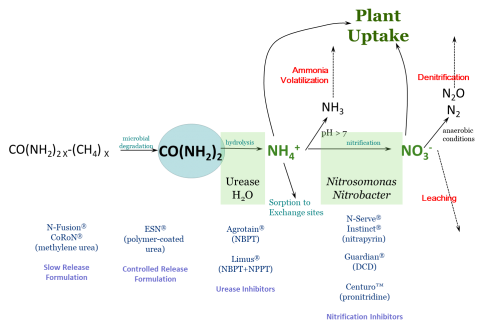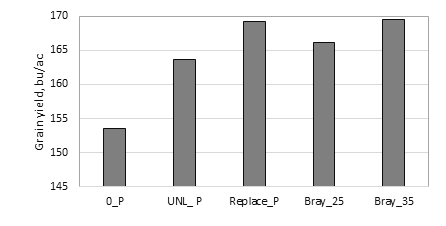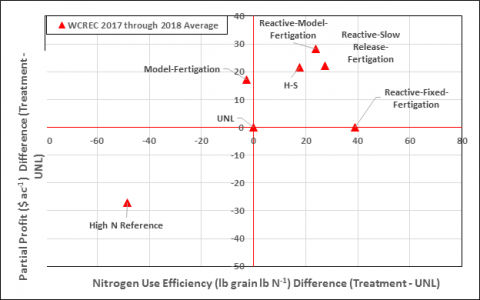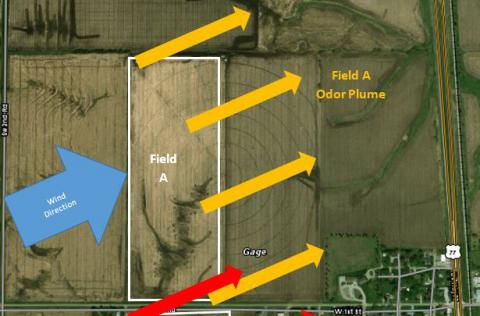Nitrogen Inhibitors for Improved Fertilizer Use Efficiency
January 14, 2019
This article looks at how some nitrogen inhibitors temporarily reduce populations of Nitrosomonas and Nitrobacter bacteria, the soil bacteria responsible for converting ammonium to nitrite and nitrite to nitrate as well as what to look for in product claims.
Fertilizer P for Corn: Update of Research Findings and Revised Recommendations
January 9, 2019
Results of research conducted since 2000 to address fertilizer phosphorus (P) for corn will be reviewed. The current fertilizer P recommendations for corn will be discussed and revised recommendations presented at the 2019 Crop Production Clinics.
Profit and Nitrogen Use Efficiency Gain Using Sensor-Guided Fertigation
January 9, 2019
A UNL study of sensor-based and model-informed fertigation treatments confirms that sensor fertigation treatments are consistently the most profitable and efficient methods of applying N compared to current best management practices (BMPs).
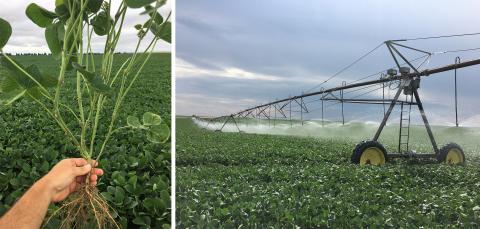
Is Late Season N Fertilization Warranted for Irrigated Soybean in Western Nebraska?
November 2, 2018
On-farm research trials were conducted in three southwest Nebraska counties to study whether a late season N application during the pod setting and seed filling phases would increase soybean yields.
Timing Manure Application to Avoid Neighbor Nuisances
August 14, 2018
Roughly half of all neighbor complaints of livestock odors originate from land application of manure. This article outlines the weather conditions to consider when planning a manure application.
What's New with S Fertilizer Use?
April 5, 2018
When is applying sulfur likely to be profitable and when is it cutting into your potential profit? This brief shares information from more than 100 university trials verifying current university recommendations.
How do You Define Soil Health?
April 4, 2018
For many people the definition of soil health depends on their perspective and use of the soil. While definitions can vary widely, there are four common practices that everyone should consider to ensure healthy soil biota.
Legumes Can Benefit Your Pasture Mix
March 2, 2018
Five years of grazing research in eastern Nebraska showed that brome/legume pastures produced almost four-tenths of a pound higher average daily gain on yearlings than did straight brome pastures fertilized with 50 lbs of nitrogen. Adding legumes to your pasture mix may be just the boost your production system needs.
